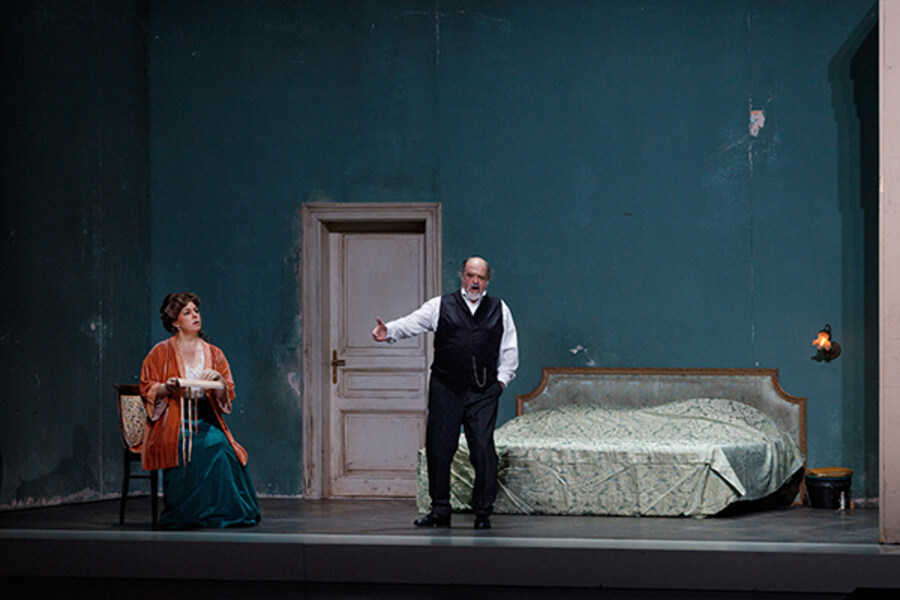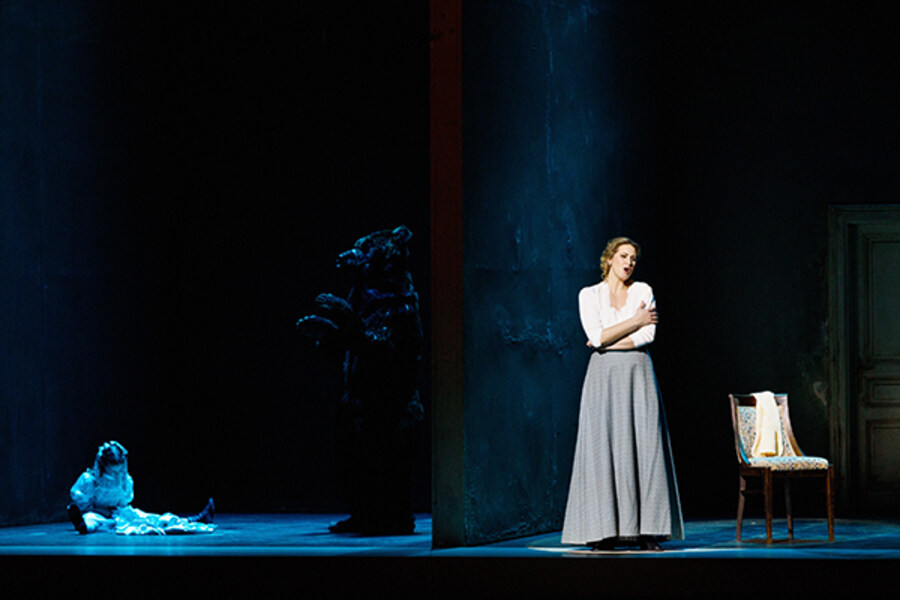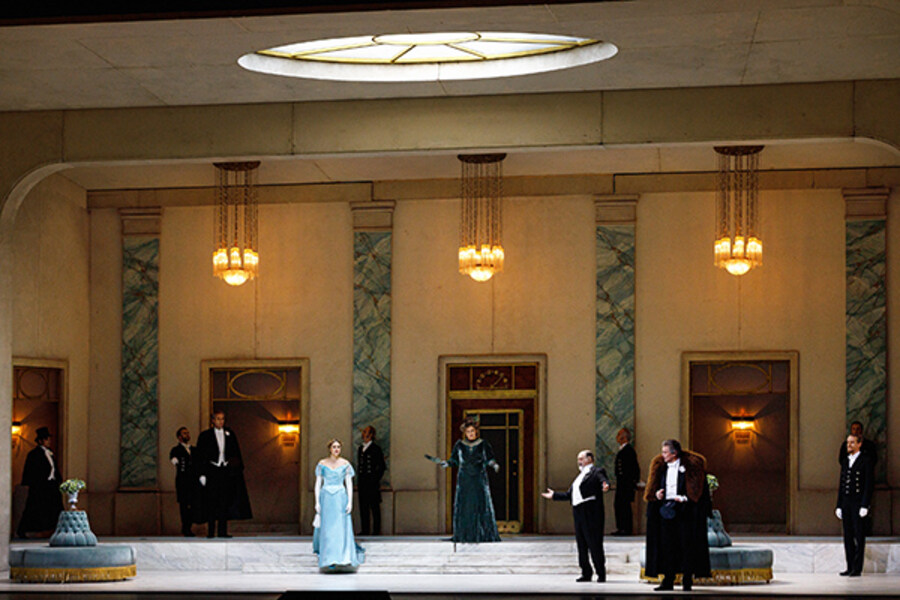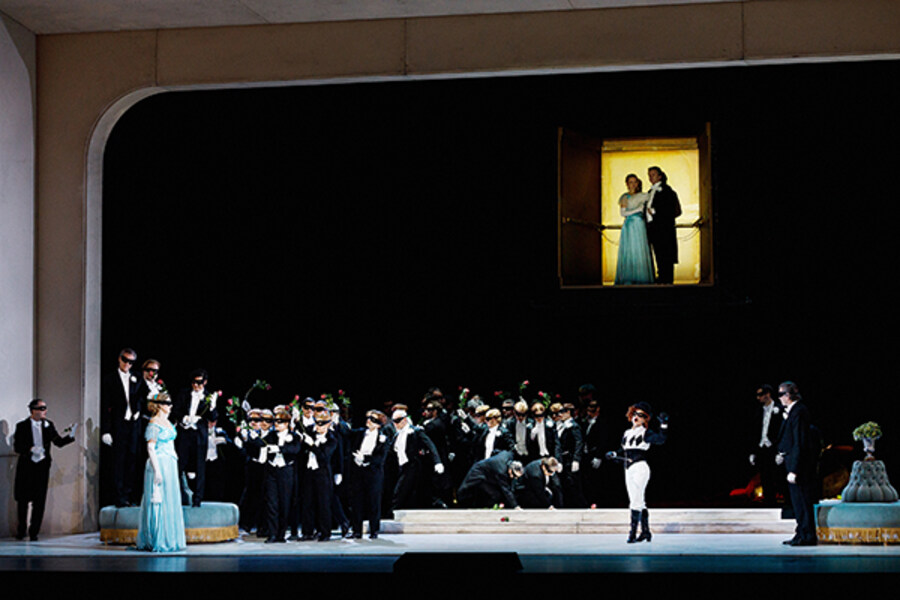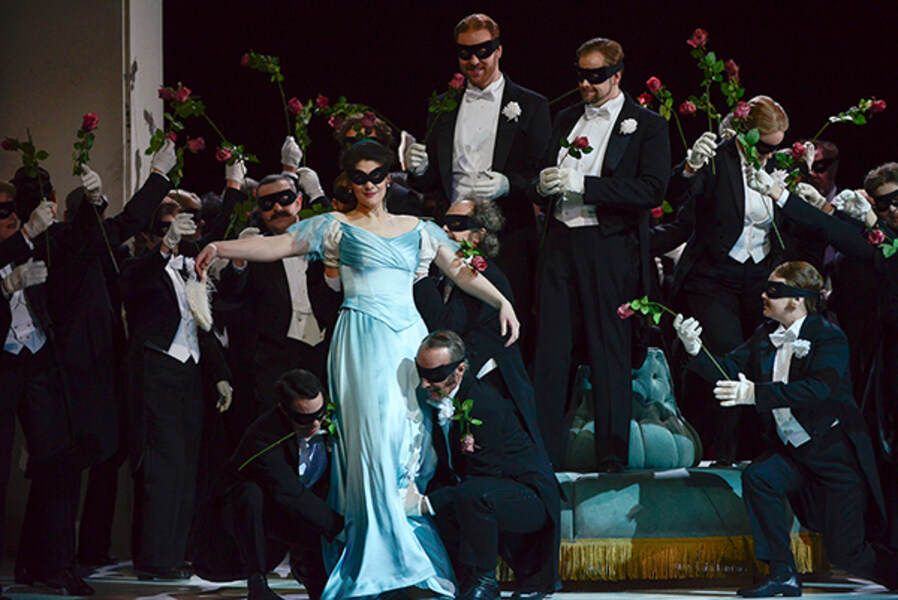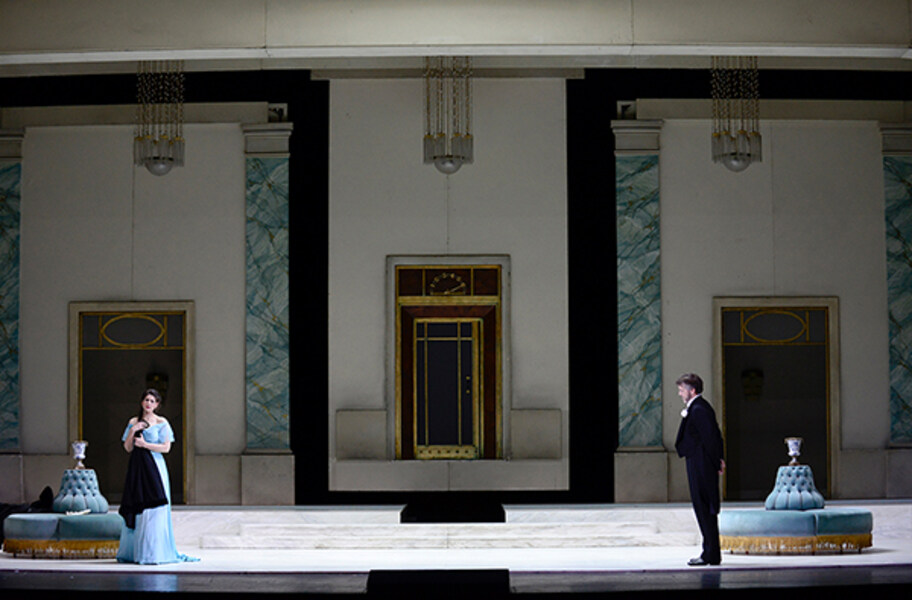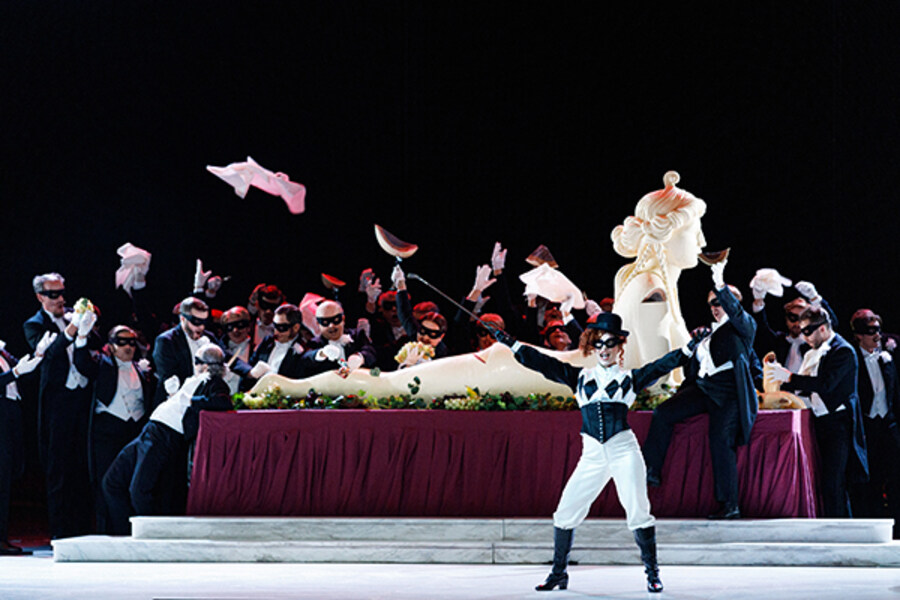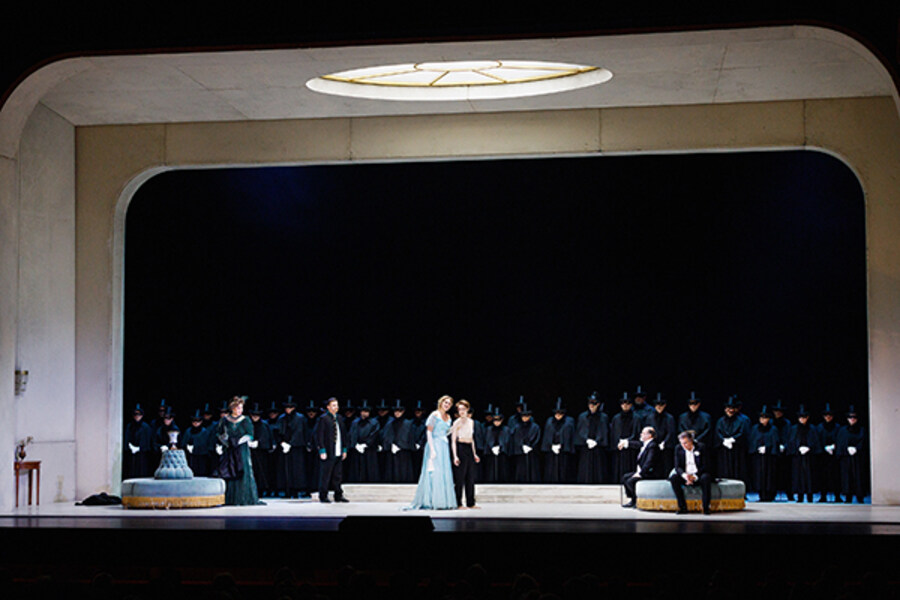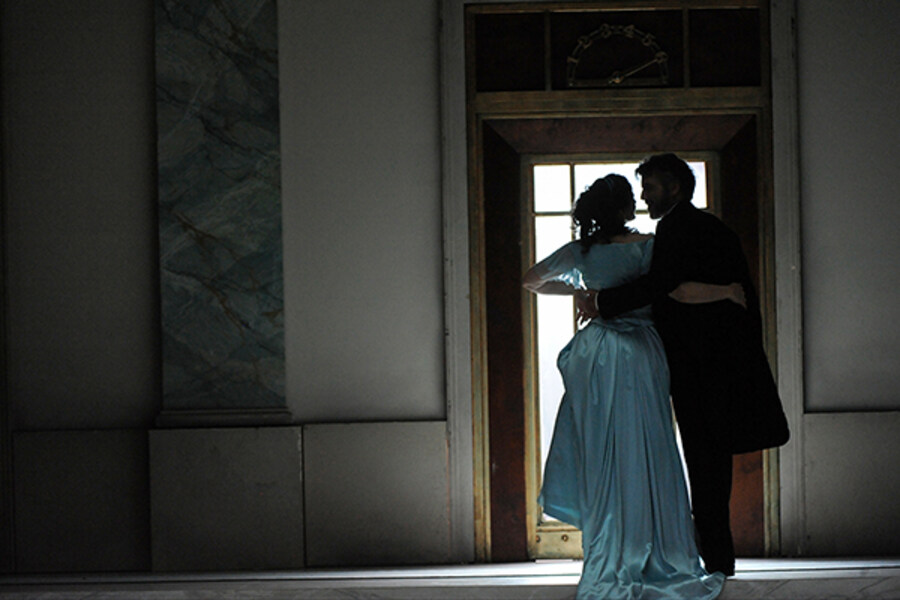Opera in three acts
Libretto by Hugo von Hofmannsthal
Performed in German with German and English supertitles
Premiere
7. November 2014,
No further performances in the current season.
Explore
Stücktrailer
Arabella
Arabella, which premiered in Dresden on 1 July 1933, tells the story of Count Waldner and his family, who are on the brink of financial ruin. For this reason, the older daughter Arabella is to be married as quickly as possible to some rich admirer, while her younger sister Zdenka is forced to disguise herself as a young man. Although the wealthy landowner Mandryka seems to be the ideal match for Arabella, an amorous entanglement between the officer Matteo, who is head over heels in love with Arabella, and Zdenka, causes great confusion, before finally resolving in peace and harmony. In this last collaboration tion between Richard Strauss and Hugo von Hofmannsthal, lush orchestration provides the backdrop to the unmasking of an illusory and decrepit society. In this co-production with the Salzburg Easter Festival, which premiered to great acclaim in 2014, director Florentine Klepper tells the story of two strong women fighting for self-determination in matters of the heart.
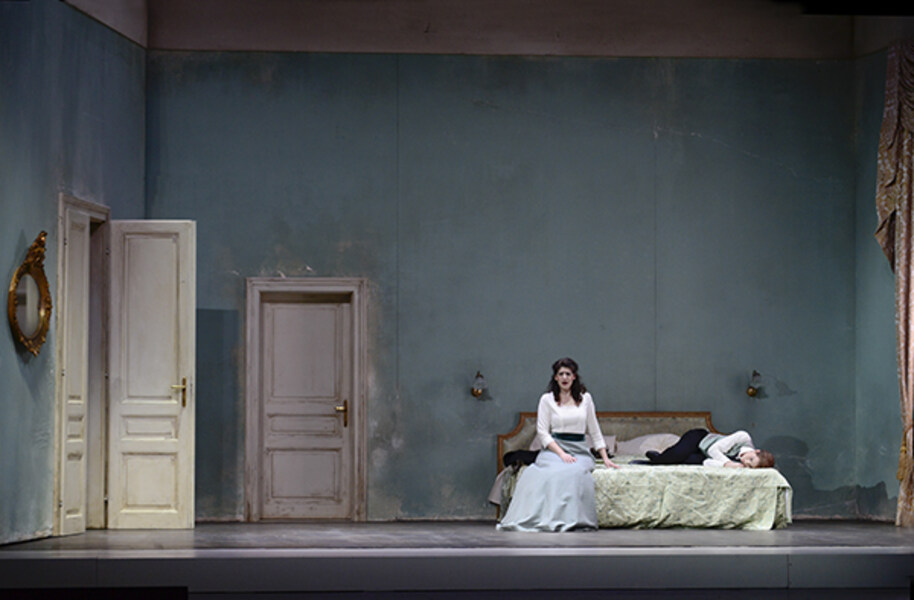
Gallery
